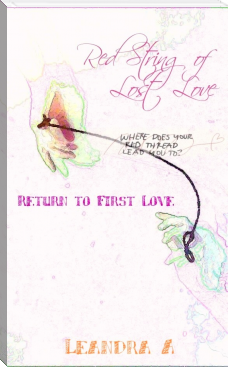The Forgotten Child - Lorhainne Eckhart (i read books .txt) 📗

- Author: Lorhainne Eckhart
- Performer: -
Book online «The Forgotten Child - Lorhainne Eckhart (i read books .txt) 📗». Author Lorhainne Eckhart
It was time to talk to Brad. She hadn’t pushed. But how do you tell a parent, who doesn’t see it? He’d be angry, but it would surely be worse if she said nothing.
Emily waited until she’d bathed and put the kids to bed. She took a deep breath; her chest suddenly feeling as if a hundred-pound weight pressed against it. She paused in the shadows and listened. The soft glow from Trevor’s nightlight shone on the wall at the top of the stairs. Emily could see Brad on the front porch, leaning against the solid white post. He was always outside. From the little she knew of him he wasn’t happy unless he was outside. Now as the sun dipped low in the sky, the bright orange and pink glow was the perfect vision before bed. The door squeaked when she pushed it open. Emily pulled the brown sweater, she’d grabbed from the hook, around her shoulders. It was cool this time of night.
“Do you have time to talk to me?”
He smiled warmly. “I always have time for you, Emily.”
“Can we sit down?” She fisted her hands in her sweater; how could she be sweating—it wasn’t warm enough.
“Sure.”
Emily chose the second rattan chair with the bright blue flowers. She didn’t need to look up to know that he sat next to her, in the matching chair, or that she had his full attention.
“You’re not okay. Something happened?”
Truth or dare. Stop stalling.
“I don’t know how to say this, so I’m just going to say it.”
The man could change in an instant. All the warmth and support fled, replaced with something dark and ready to snap. The momentary change made her afraid.
“So you’ve decided to leave,” he said. “I should have known better. Why?”
Her mouth gaped. The man jumped to conclusions faster than changing the station on TV. “I’m not leaving, where would you get that idea?”
He threw his hands up, squinting. “Then what is it? Your ex again?”
“No, it’s nothing like that. Brad, you know how much time I’ve been spending with Trevor?”
He relaxed a bit and leaned back in his chair, but she could still feel that he was wound up tighter than a steel coil. “Hmm, mmm.”
“Okay, I just need to say this. You know how you keep getting after Trevor when he does something, like dump over a plant and play in the dirt, or the way he latched onto that lady like a human leech?”
He brushed his hand in the air to dismiss her words. “Come on, Emily, he’s just a boy, doing little boy things. Don’t worry about it. Girls are different, they’re easier; just ask my mother.”
He truly didn’t see anything was wrong. “Trevor doesn’t talk, he avoids eye contact, sits lost in his own world, and uses a one-word vocabulary, of maybe fifty words total. He has full-blown tantrums on the floor, pounding and screaming. And I don’t know what’s going to set him off. Could be the wrong food, something was moved, or a stranger comes to visit. Trips to stores are a nightmare, and my anxiety level goes through the roof because I’m anticipating what he’s going to do. He’s urinated on the floor in the middle of the grocery store; he had a meltdown in the checkout lane, and runs his fingers over the conveyor belt where you put your food during checkout. Storekeepers get mad. If I grab his hand to get him to stop, he might scream. Depends on the day, what he’s eaten and what’s happened before we get to the store. I never know what will set him off.” Brad tilted his head, tapped his forefinger against his lips. Emily continued. “You can’t reason with him. And the way he stares; he doesn’t appear to understand. He plays alone and will not play with Katy, no matter how hard we try. He moves away if she invades his space. I turn the television on; he loves it. It’s like he’s consumed by it, and even then, he can’t sit still. He’ll stand in front it jumping, laughing and giggling; engrossed in the rainbow of colors flashing over the screen. I’m betting that if you took Trevor to a family gathering, or big social event, it’d most likely be a nightmare. His behavior’s odd. People get weirded out because they don’t know what to do. And I’m pretty sure he picks up on everyone’s anxiety. There are safety issues with Trevor, beyond the scope of a typical three-year-old. I always worry while in town if Trevor will dart out into the street. He doesn’t recognize cars, traffic or even people around him. He touched the hot stove last week and burned his finger. He never cried; no reaction. Brad, I started researching his symptoms. The internet is full of information and what I discovered were symptoms of autism.
Brad rose and paced, running his fingers through his hair.
Emily forged on. “Autistic children are not all the same, they have different symptoms. I’ve read about therapy for autistic children—therapy tailored for each individual child.”
Even in this dim light, Emily glimpsed the color rising in his cheeks. Brad wasn’t just pacing; she could feel the adrenaline cut through the space between them. “I need some air.”
“Brad, wait!”
“No, Em, back off.” He kept going, down the stairs toward the barn. She could almost feel the rage burning through him.
He knew. She’d gotten through. Now the real work begins.
Bright red numbers flashed, 4:39 a.m., on the bedside clock. The rooster crowed. She heard a rustling coming from downstairs. Emily slipped out of bed and pulled on her brown housecoat; the one she kept draped at the foot of her bed. Guided by the hall nightlight; Emily tiptoed to the stairs.
A silhouette of light trickled from the kitchen.
Emily held the cedar handrail as she crept barefoot down the stairs. Brad held the glass carafe from the coffee maker as he fumbled for the coffee in the cupboard. He reeked of booze and wore the same brown plaid shirt from yesterday. Dark stubble covered his cheeks, his chin. His short hair stuck up clumps and tufts. She touched his hand and gently took the carafe. He stared straight ahead, then turned like a man defeated, and walked, like the living dead, to the table and sat in his chair. He stuck his heavy work boots out; they were coated with mud. Emily spied the trail he’d tracked from the back door, through the kitchen.
Emily scooped coffee into the basket, poured water in the coffee maker and turned it on. What could she say to ease his turmoil? When enough coffee filled the pot, Emily poured out two cups, adding milk and sugar to his. He never looked up when she placed his mug in front of him. Emily pulled out a chair beside him. She sat and scooted closer to the table. She gazed into her coffee, searching for some miracle answer, but one wouldn’t appear.
Brad didn’t move, nor did he reach for his coffee. He leaned forward, resting his arms on the table. His lips trembled. A glossy sheen covered the tiny red lines that appeared like sandpaper in his eyes. Had he slept? She’d say not. Was he drunk? More than likely, it was a poor attempt to anesthetize. His dark brown eyes reached out to her with something that appeared lost and helpless.
“Does Trevor have autism?”
Emily lean over and covered the hand he’d balled into a fist. “I’m so sorry. I didn’t know how to tell you, but from what I read, he shows all the symptoms.”
“Is it my fault, something I did?”
“Oh, God no, Brad. They don’t know what causes it. But the numbers are skyrocketing. From what I read; one in a one hundred-fifty children will be diagnosed with autism, and it’s even higher in boys. Out of every five children diagnosed with autism—four are boys. That’s an epidemic, not something you did.”
“So…now what?”
“You need to get him diagnosed. And you need to start an early intervention therapy right away. I’ve been emailing a local parents group I found on the internet. They sent loads of information for you, so you know where to start.”
“I don’t understand what you do.” Brad was alone, and he was looking to her.
“One of the parents, a mother from a mom’s support group I’ve connected with by email, hired a consultant who is trained specifically in neurological disorders, and has a BCBA and psychology degree for children and adults with autism. The consultant is local, just outside Olympia, and she has a proven track record. I don’t know all the details of what exactly she does, just the basics. But it’s a start.”
He watched her close, sobering as he listened.
“She works with the schools putting together a home and school program. She sets goals, creates programs for academics, socialization, peer interaction, language and behavior. She establishes strategies and changes what doesn’t work. These kids work hard, but from what I’ve read, these kids make real progress with the right therapy.”
“A mom’s group, huh? Well how about that? Women who actually care about their kids.”
This time when he looked at her, something inside of him pulled away. You know, the feeling you get when someone needs distance. He downed the rest of his coffee that had long since gone cold,





Comments (0)